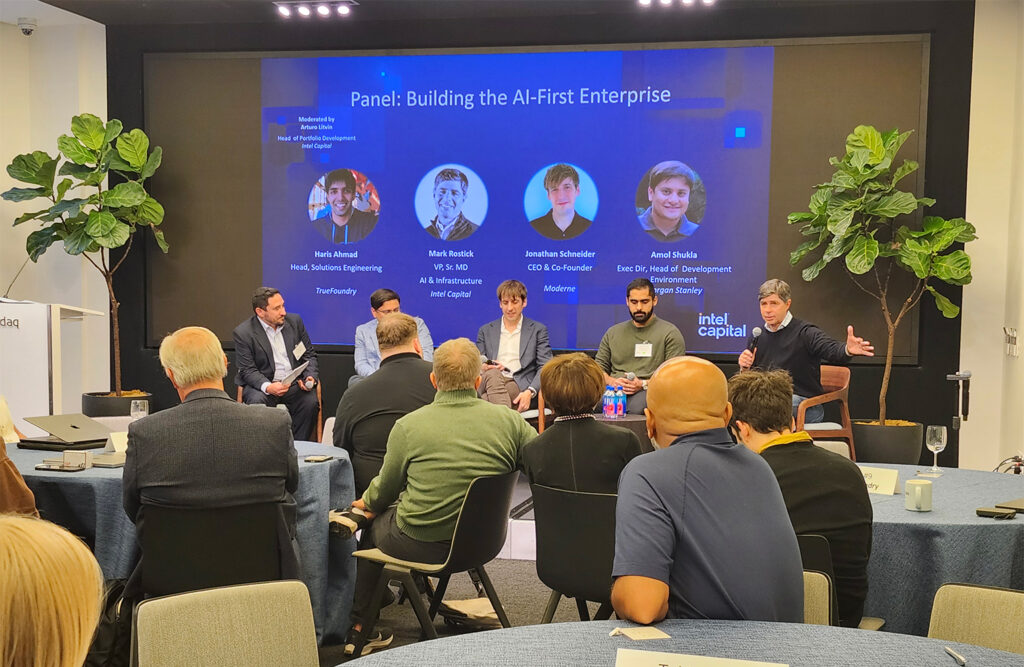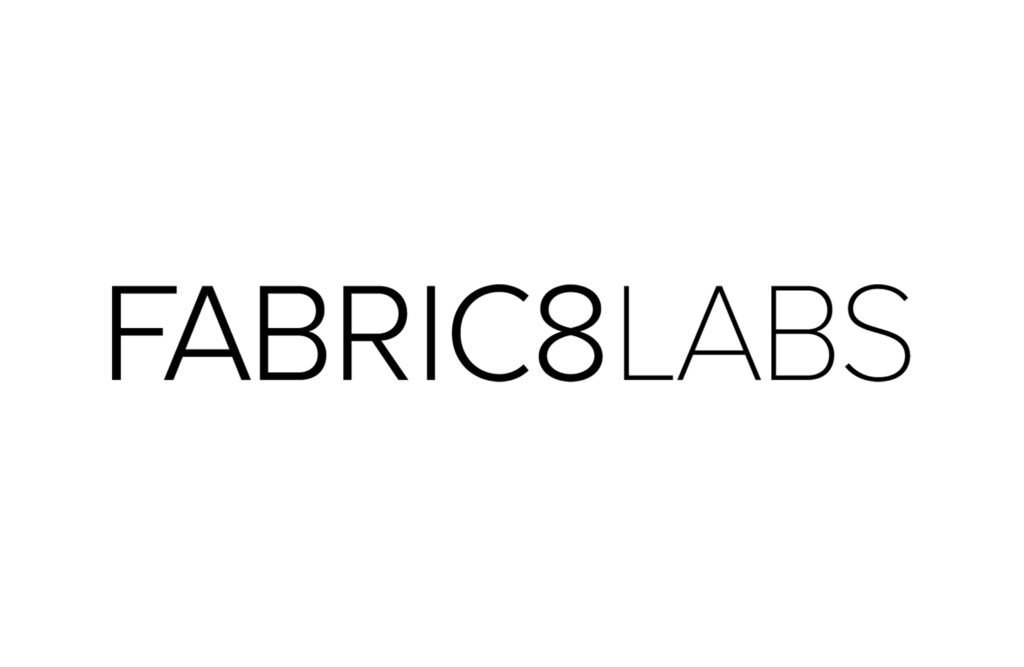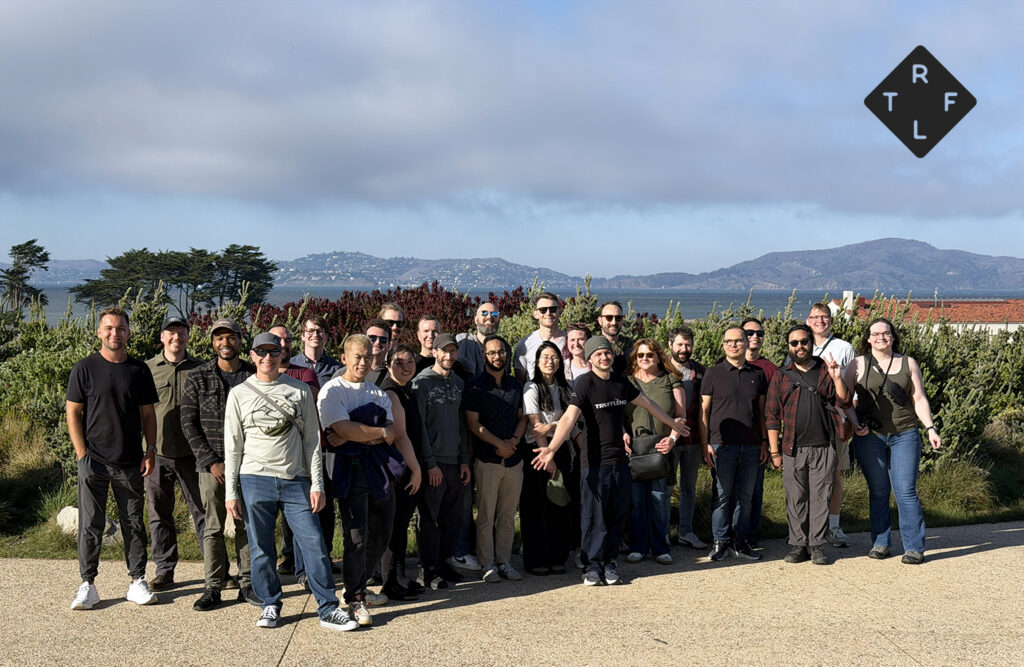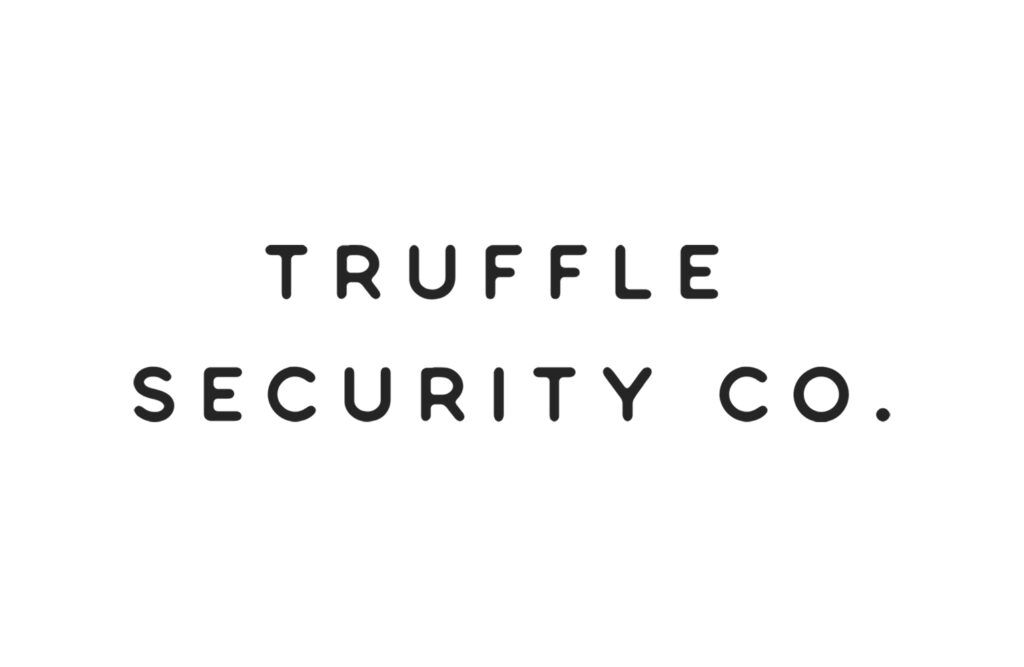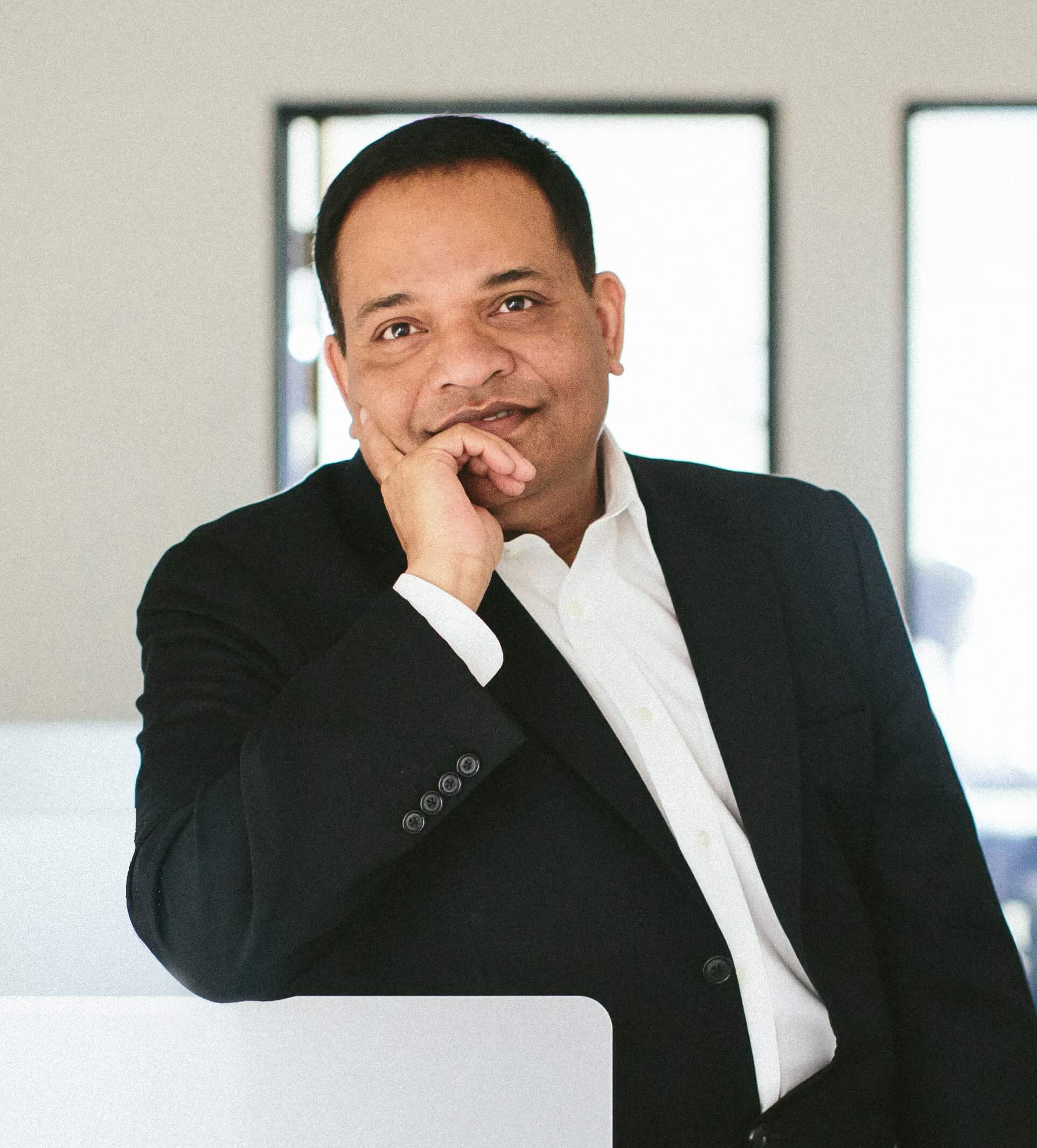
Founder Q&A: Avaamo Co-Founder Ram Menon is using AI to change the way we communicate
When Ram Menon sat down recently to discuss life as a Silicon Valley CEO, his confidence came through with a rhythmic bobbing of his head, as if he were fueled by some interior jukebox. Before he'd finished talking about his fast-growing startup Avaamo, Menon revealed, among other things, an eclectic love of music that ranges from Fats Domino all the way to Pink Floyd.
Los Altos-based Avaamo, nearly five years old and just past 80 employees in the United States and India, is pushing the limits of conversational artificial intelligence. In tech talk, Avaamo is "a deep learning enterprise software company specializing in conversational interfaces." In plain speak, Avaamo develops super-sophisticated chatbots that efficiently take on complex, daily phone interactions with employees, customers and vendors the world over.
By helping companies handle the towering number of such tasks in a variety of languages, Avaamo is re-defining how AI can perform in specialized fields like banking, healthcare, telecommunications and more.
Prior to Avaamo, Menon spent 15 years helping transform TIBCO from a tiny software firm in Palo Alto to a worldwide behemoth. So in April 2014 – shortly before TIBCO was taken private in a $4.3 billion deal – Menon and his longtime colleague, Sriram Chakravarthy, co-founded Avaamo with the idea of turning conversational AI into something far superior to the likes of Siri or the frustrating service recordings widely used in business today. With 100 Enterprise and SMB customers in 40 countries, Avaamo is already a world leader in conversational AI, with much more growth to come.
Q: What's the connection between a vast company like TIBCO and Avaamo, a true startup?
TIBCO pioneered how systems talk to systems. Given where tech is today, we wondered: "How do human beings best talk to systems? And how do we do that better?" That was the basic premise for the founding of Avaamo.
Q: What steps were involved in birthing Avaamo?
We started by acknowledging that conversation is the most primal form of communication. First came GUI [graphical user interfaces], then came browser clicks, then came touch. But now, we just talk to our devices. Talk is a very secular trend, one that is going to become ubiquitous. And that is how we thought about Avaamo and the market opportunity.
Q: Every day, all over the world, millions of people interact by phone with machines. How is "conversational AI" different?
What you are talking about is a conventional, interactive voice response system, which is from the 1990s. The more modern view of this segment would be the first generation, Siri. All it recognized was your words, and you set a task: "Record," or "Play Taylor Swift." The second generation is Alexa. You can ask it, "What's the recipe?" Or, "What's the weather in Los Altos?" That could be called a transaction, or maybe an interaction. Not earth shaking, but useful.
Q: How do all these systems compare to what Avaamo is now doing?
Think about what we do is as third generation, where you can actually have a conversation, not just ask for a simple task. When a real person calls an insurance company wanting to buy insurance, the AI must ask questions such as: "What type of insurance? How old are you? Do you have dependents?" There is a back and forth that's the human-like aspect of this. A multi-turn conversation sounds simple and intuitive for a human being, but it's a lot of work for a computer. It involves millions of bits and bytes happening in real time before the engine can give you a reasonably credible answer. That is what Avaamo is all about.
Q: Artificial intelligence is so daunting a subject that a lot of universities are studying the fear of machines replacing human beings.
When Henry Ford created the car, all the guys who made buggy whips got upset. AI is just the world moving forward. In this field, we are finding our feet; we are not going to have singularity by 2020. It's progress, not a calamity.
Q: When you look at all the companies worldwide needing to answer vendors, employees and customers, isn't the idea of machines handling complicated voice interactions a daunting one?
Yes. Think about machines doing such verbal interactions six million times a year. Then think about doing it with near-human accuracy in numerous languages all over the world. That is a serious problem. But it is emerging, and we already have customers. Our technology is not fully ubiquitous yet, but hopefully we will be in a couple of years.
Q: How did you go about finding the right investors?
When you start in a new space – AI in this case – you want to have the ecosystem invest in you. So we eschewed the more traditional model of obtaining financial investors. When you think about the ecosystem in technology you have hardware, software, and software-enabled services – the guys who have the hammer and the nails.
When you look at hardware, you must look at Intel. We have customers who run big, custom workloads on Intel architecture, so it just made sense. When you think about software, there is no better partner than Ericsson; one of our target markets is big telecom, and 54 percent of wireless traffic in the world still runs on Ericsson boxes. Then we have WIPRO, which is a $7.5 billion systems integrator – the guys who have the shovels. They actually implement our software and have hundreds of people trained, so we are able to punch above our weight. Those are my investors, the emerging ecosystem around creating and implementing AI for very large enterprises.
Q: The basic startup dream scenario is all about grabbing eager money. How do you feel about that process?
I have a philosophy that most startups in the valley look at things with rose-colored spectacles. Something like: 'I want an amazing venture capital backer, and I want to raise a lot of money.' I call all that 'founder fandom.' You want to be on some stage alone and hold forth, while everybody listens to your pearls of wisdom. Me? I believe too much is made about all these things. Just keep it simple.
Q: If not flash and fame, what's the key to developing a successful startup in Silicon Valley?
I've been here 20-something years. I think people need to calm down and just do the job. My job is to create software for some of the largest companies in the world and to generate value for them. If I'm talking to a very large customer in Louisville, Kentucky, he is looking for new technology that has value. If you don't give him that value, he is not interested in you. That is the world I live in.
What Silicon Valley must understand is that you have to gear to your customer first. Just do the right thing by your customers and by your employees. And, while you're doing it, have fun. That's my job, and it's not all that difficult.
Q: What is your plainest advice about effectively operating a budding company?
Never, ever, ever, ever give up. Remember, it is never easy to grow a start-up successfully. It is never easy to come up with an idea and to get other people interested enough to write a check. It is not easy to get other people interested in your idea enough to help you build it. It is not easy to get other people interested in your idea enough to buy it. None of that is easy – so that is why you can never, ever, ever, ever give up.
Q: You were born and raised in India; what in your personal history helped prepare you to excel in high tech?
History and culture demand that we value education above everything else. I grew up as the only child in a family that believed if you did not have a Ph.D., you were a loser. I trained to be an industrial engineer, and I have no formal training in software. But I decided not to be a professional student by pursuing a Ph.D. I finished my masters and started my career.
So I guess [chuckling] I am a failure. But from the time I was a child of about 10, I somehow knew I wanted to run my own company. I didn't know if I would be selling brooms, but I just wanted to run my own company.
Q: Any dreams deferred?
My dad was an old-fashioned guy. At one point I entertained ideas of being a chef. When my dad heard that, the first thing he said was, 'So you want to be a cook.' I said, 'No Dad, I want to be a chef.' He said, 'No, you want to be a cook, and if you do that, you have to be the best damn cook in the world. Do cooks have a Ph.D? What is the maximum education you need in that profession? As long as you have that, then you can be a cook.'''
Q: What happened to the cook dream?
I replaced it with something practical.
Q: Away from work, do you have personal passions? Hobbies other than working the startup?
I collect old records. Stuff like Fats Domino, artists young people like my son don't know. I listen to Ella Fitzgerald, I collect Arlo Guthrie and a lot of blues. On vacation, my family wants to go see the sights; I want to go to old record stores [chuckles].
Q: Other than appreciating the music itself, why does buying and selling old records appeal to you?
Because I don't lose my entrepreneur's instinct. When I buy music, it has to have value – so if I put it back on the market, I have to get more than I paid for it. I will, for example, buy a signed Pink Floyd album, which I won't actually use. I'll buy another copy that isn't signed, and that becomes the album I actually listen to all the time.
Q: Intel Capital is your biggest investor. Has that helped you open doors with customers?
Without a doubt. Intel is one of the best known tech brands in the world and stands for both innovation and reliability. Having the company's backing has been a critical component in our growth. We've been lucky to collaborate with Intel at multiple levels – working with their sales team and portfolio teams. We are also part of the Intel AI builder program and just released a reference architecture for Conversational AI workloads.
Q: You had connections to the late Andy Grove that informed your thoughts about Intel -- right?
Yes, and it is deeply personal. When TIBCO started many years ago, it was Andy Grove who gave us a shot. TIBCO was a little company, and Intel was our first customer. Fast forward to when Avaamo took its first office in 2014, and we happened to be in the same building as the Andy Grove Foundation. I used to see Mr. Grove every day, I'd help him up the stairs. [Grove suffered from Parkinson's disease until his death in 2016.] He was one of my original heroes, and here I am seeing him every day, and now Intel Capital is investing in my company.
Q: So if you're not much for the flash and fame of Silicon Valley, what is it about the place you do revere?
What I treasure about Silicon Valley is how my heroes are all around me. When you ask most people to name their heroes, they name people who belong to another time or place. Here? I got to see Andy Grove get out of his car every day, and sometimes Bill Gates came to see him. And once, I lived on the same street where Steve Jobs used to live – six houses from where Apple was founded. I live in this wonderful place where my heroes are just ordinary people. Considering that, I could not be more blessed.

